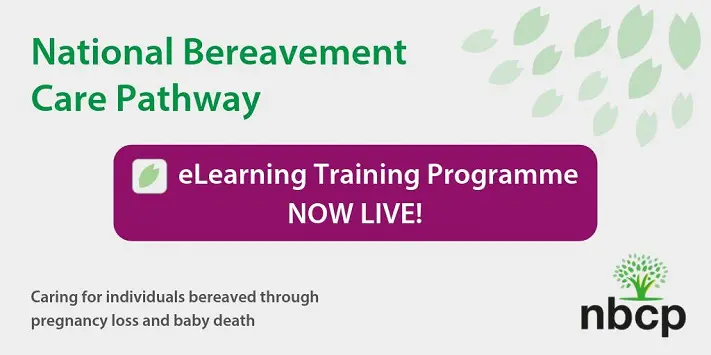The Institute is pleased to participate in and support National Grief Awareness Week (#NGAW20) which runs 2-8 December 2020.
Many of us have been affected by loss of a loved one this year and will recognise the importance of the key messages being shared during this awareness week. Isolation and social distancing makes grief so much more complicated but it shouldn’t limit the support being offered. Health visitors have the skills to help parents they work with to navigate their loss and can be a really important part of the support system if they put themselves in the right place at the right time. It can be difficult to find the right words, but we are offering the following to inspire confidence for practitioners.
Good Practice Points
During #NGAW20 we will be publishing a suite of five new Good Practice Points (GPPs) on different perspectives of grief and loss to support health visitor practice in this area, including:
- Care following pregnancy loss or death of an unborn baby
- Care following death of a baby (including stillbirth and SUDI)
- Care following death of an infant/child (1-4years)
- Supporting parents whose parent (or early attachment figure) dies
- Supporting parents when their partner dies
These new GPPs will join our current revised GPP – When a parent dies
GPPs are available to our members and will be published on our website throughout this week – so look out for them!
Voices blog
We will also post a new Voices blog from Marc Harder – Sands, National Bereavement Care Pathway Project Lead this week – coming soon!
National Bereavement Care Pathway
If you haven’t visited the National Bereavement Care Pathway information yet please do. It is a pathway to improve the bereavement care offered to parents in England following pregnancy or baby loss. There is a wealth of helpful resources and information within the pathways developed, and more than 50% of maternity provider organisations have signed up to adopt the pathways and bereavement standards in practice to date. It is a massive achievement by the team and does mean that a huge proportion of you will be working alongside midwifery colleagues working to those standards with parents in their/your care.
e-learning
Make the most of the fantastic e-learning modules hosted on the e-Learning For Health (eLfH) platform. The two modules include:
- Bereavement Care after Pregnancy Loss or Baby Death – Learning for All: this has been designed to provide support when talking to bereaved individuals. They offer suggestions and guidance about what to say and do and are suitable for anyone who might come into contact, in their work or home life, with a person bereaved through pregnancy loss or baby death.
- Bereavement Care after Pregnancy Loss or Baby Death – Healthcare Professionals: this course is for healthcare professionals caring for newly bereaved individuals. Working through the themes of the National Bereavement Care Pathway, the course helps healthcare professionals understand the important elements of excellent bereavement care
The Good Grief Trust
Go to The Good Grief Trust website for a range of information for families and professionals relating to all aspects of grief. It really is a one stop shop. Good Grief Trust cards entitled “Help and Hope in one place” are available to all practitioners so you have these to offer families as needed. CEO Linda Magistris is keen to get these to health visitors.
Finally, keep an eye out for the national events taking place this week coordinated by The Good Grief Trust as part of the national awareness week. See programme at: http://nationalgriefawarenessweek.org/events/?event-year=2020
- We draw your attention to Monday 7 December, which is a Bereaved Parents day and will focus on baby loss and child loss (at any age).
- The week will finish on Tuesday 8 December with an evensong at St Paul’s Cathedral – London, an informal minute’s silence at 5pm and UK-wide buildings (including St Paul’s) being lit up in yellow from 6pm to commemorate all those lost this year.
And finally
Please keep safe and well this National Grief Awareness week. We are seeking to support the campaign to normalise grief and help people to talk about loss. Remember the resources are there for you too, should you need them.




